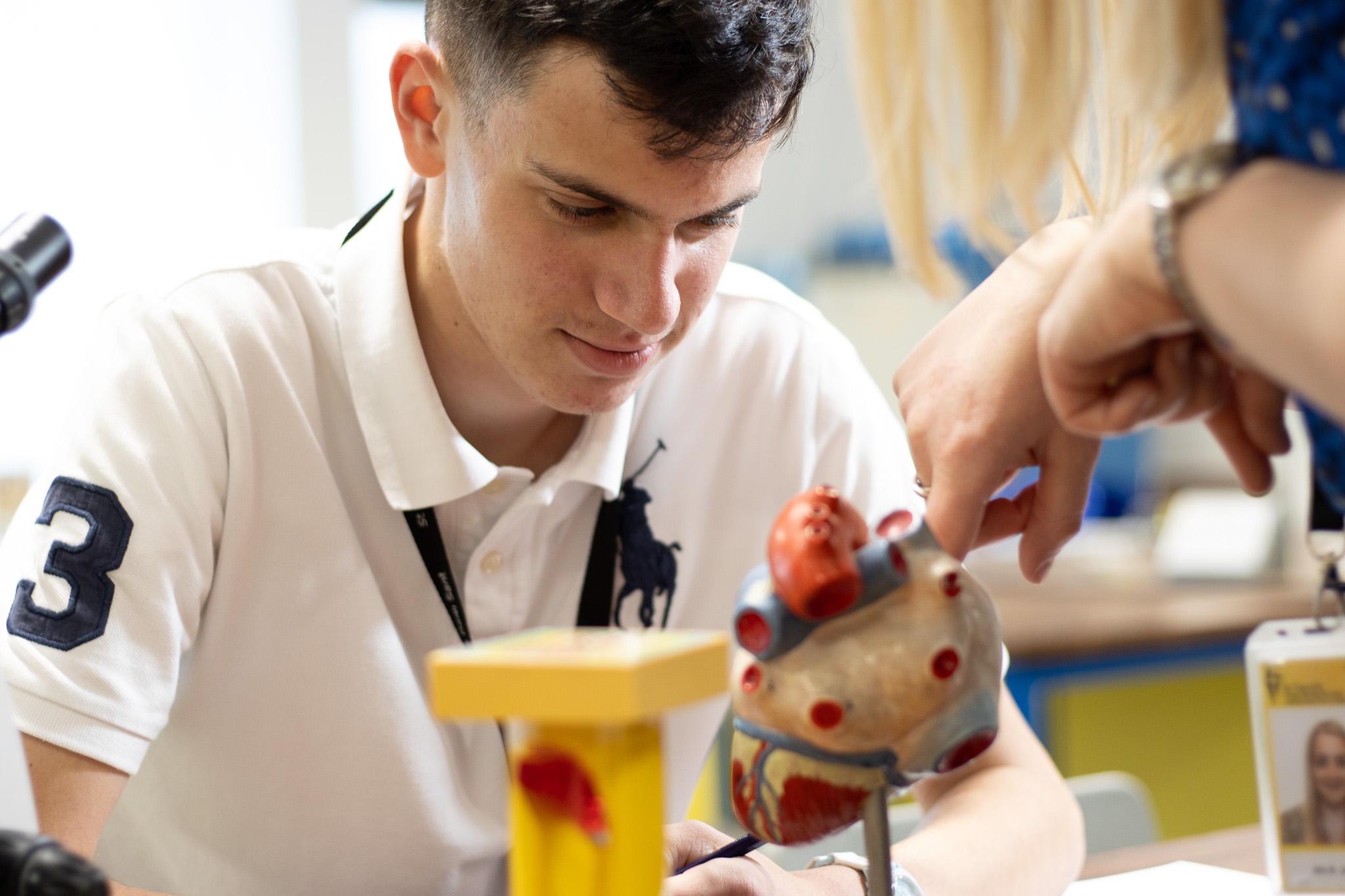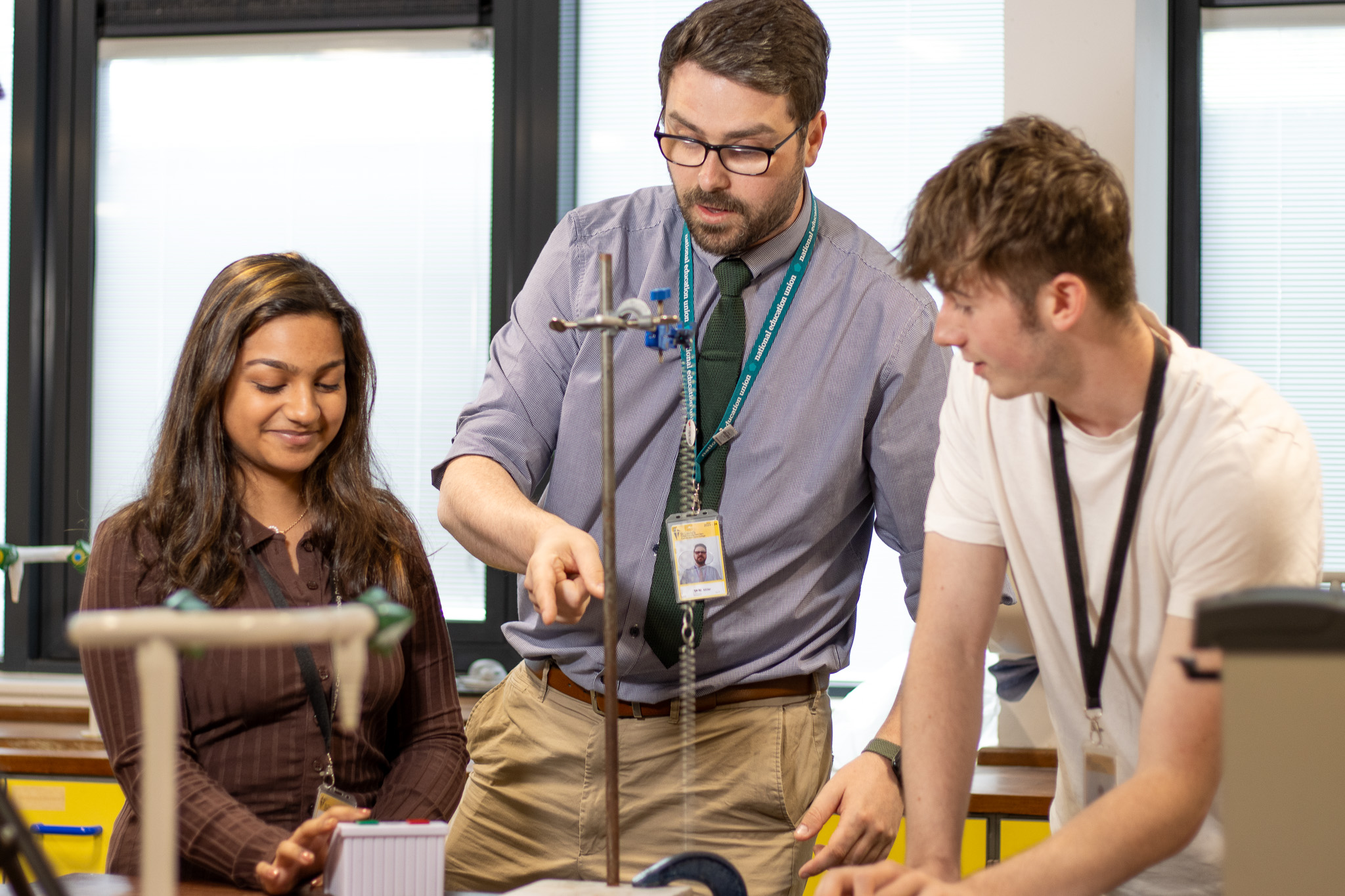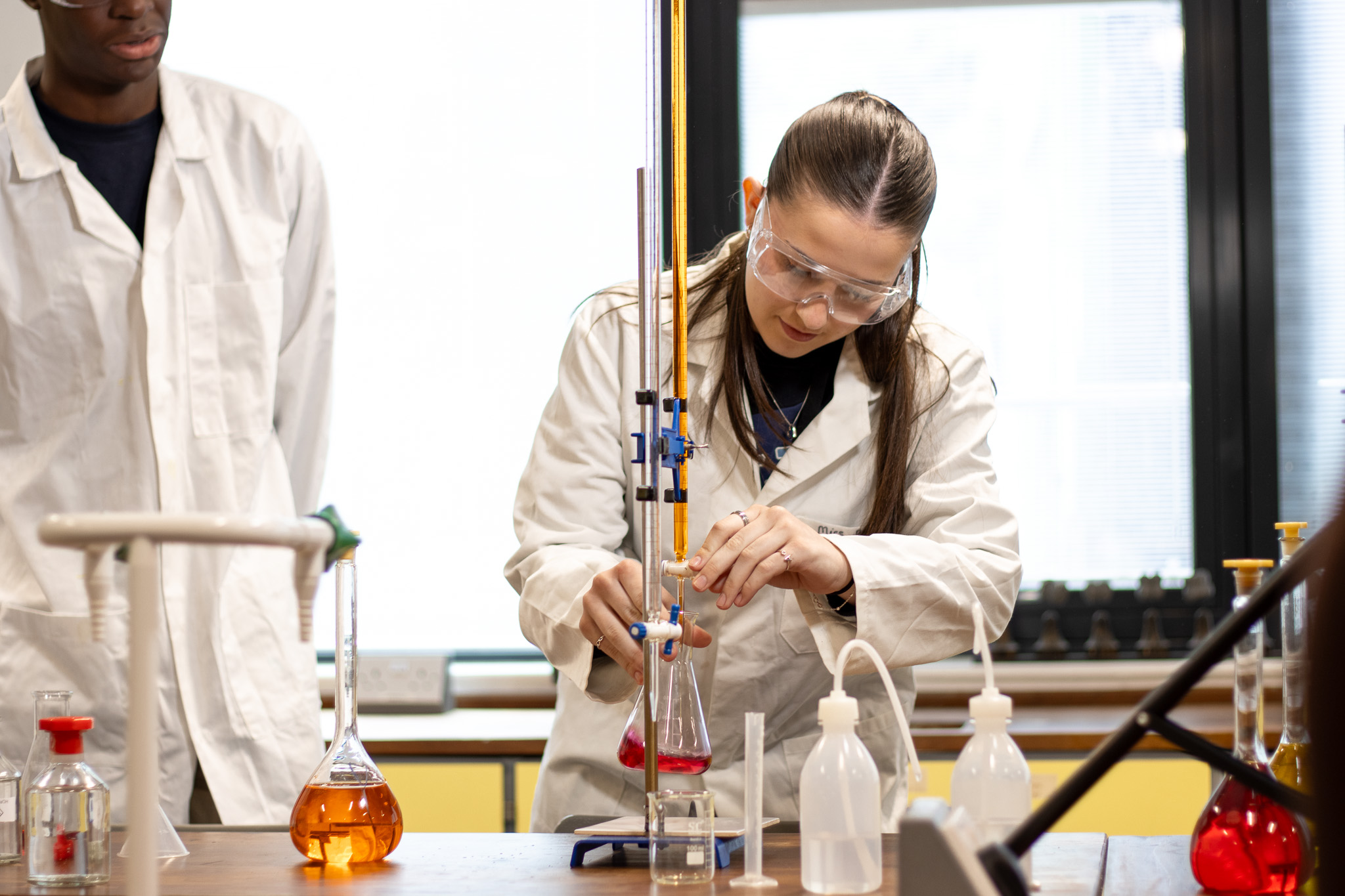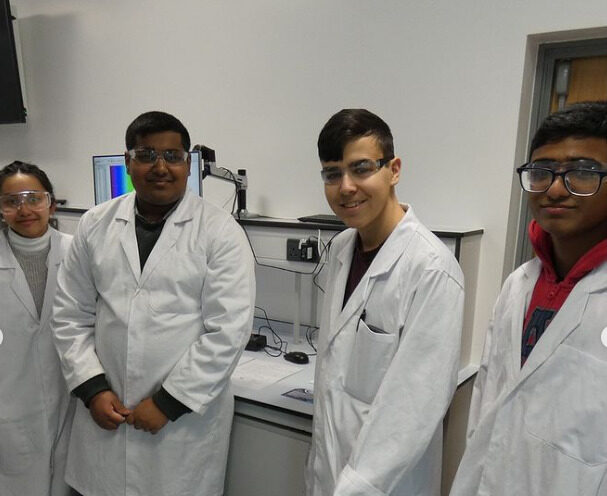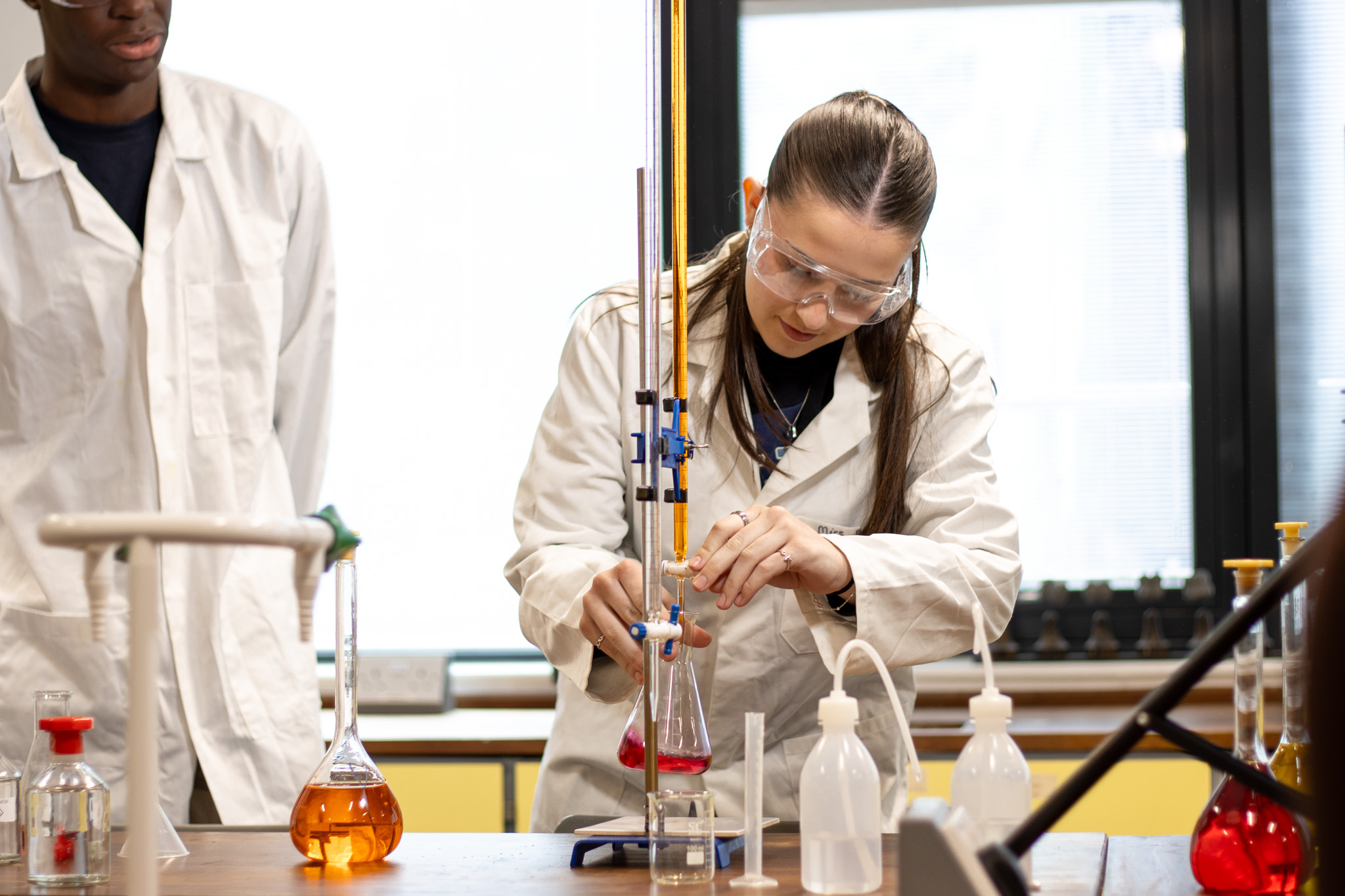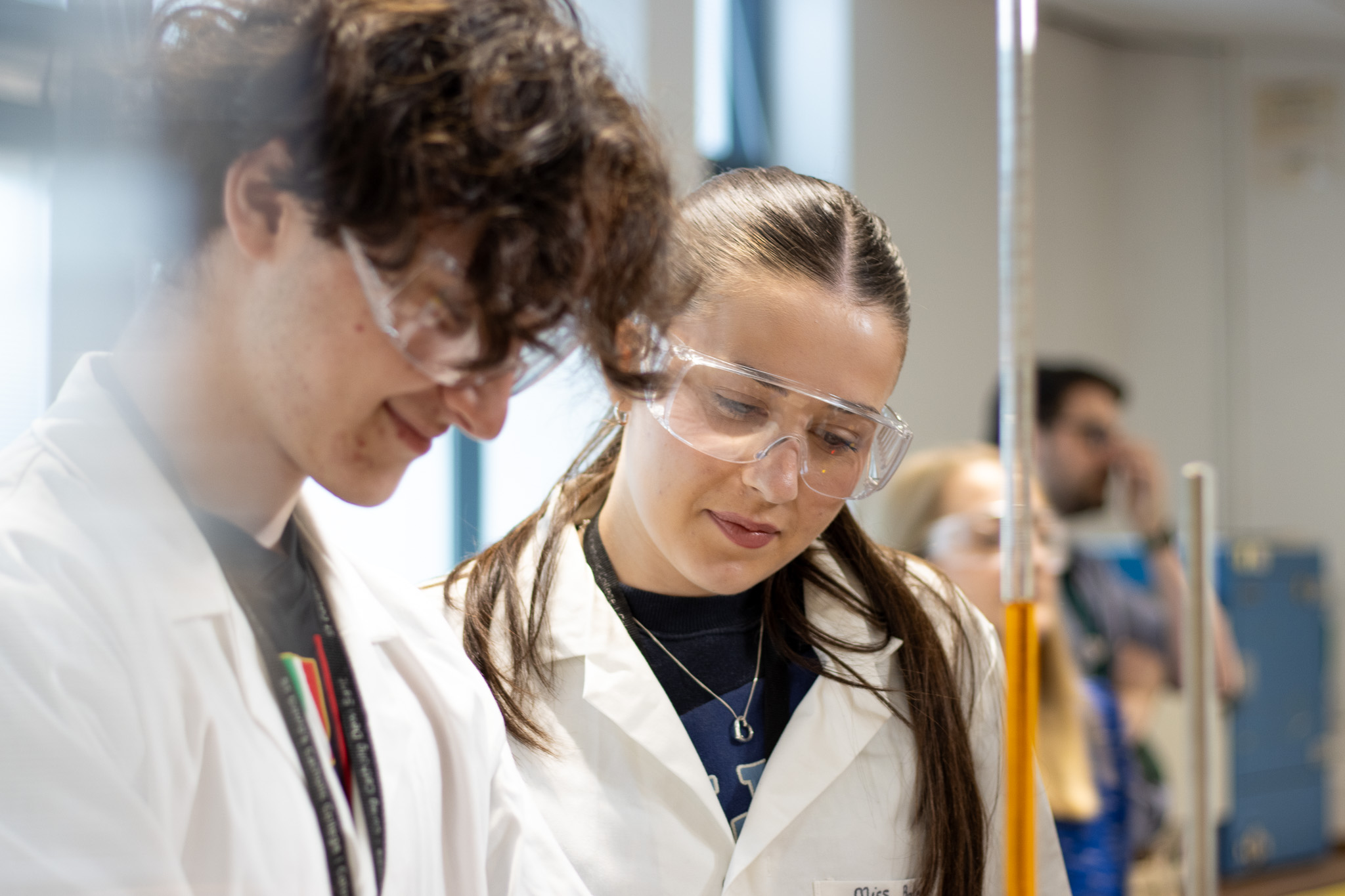
Chemistry A Level
Qualification
A Level
Exam Board
WJEC
Length
2 Years (AS level after first year)
Entry Criteria
6 grade C’s at GCSE, including a grade BB in Double Award GCSE Science OR grade B in higher tier Chemistry. A grade B in GCSE Maths and a grade B in GCSE English Language is also required.
Chemistry A level Overview
Chemistry is assessed by means of a combination of written papers and practical assessments.
AS Level (year 1)
Unit 1: The Language of Chemistry, Structure of Matter and Simple Reactions
The structure of atoms is examined along with the calculations that allow us to determine expected yields from chemical reactions. In addition, we will look at reversible reactions and the structures of several solids.
Unit 2: Energy, Rate and Chemistry of Carbon Compounds
Energy changes of reactions are studied as well as the factors that affect the rates of chemical processes. This module also introduces organic (carbon) chemistry and spectroscopy.
A2 Level (year 2)
Unit 3: Physical and Inorganic Chemistry
The periodic table is studied in more depth than at AS. In particular the chemistry of the Transition Elements and Groups III, IV and VII is examined. The creation of electric potentials between two different elements is explored in detail, along with further studies of energy changes that occur during reactions. Finally, the way in which experimental results can lead to detailed determination of the processes that take place during a reaction are studied.
Unit 4: Organic Chemistry and Analysis
Building on CH2, this module explores a wide range of classes of organic chemicals and their characteristic reactions. Methods of analysis and properties peculiar to certain organic species are also studied.
Unit 5: Practical
This unit consists of two equally weighted tasks that are performed under exam conditions.
Most subjects can be successfully studied alongside Chemistry. This is because Chemistry is a subject in which many key skills are developed. Such skills are key to any future career.
For those wishing to pursue a career in medicine, veterinary science and many other scientific careers, Chemistry is an absolute must. Additionally, many chemists find careers in marketing and sales, journalism and advertising, and law. The range of careers open to chemists confirms the high regard in which someone with such an all-round set of skills is held.
6 grade C’s at GCSE, including a grade BB in Double Award GCSE Science OR grade B in higher tier Chemistry. A grade B in GCSE Maths and a grade B in GCSE English Language is also required.
A grade B in a discursive subject like History, Religious Studies or English Literature can be used as an alternative for English Language.


